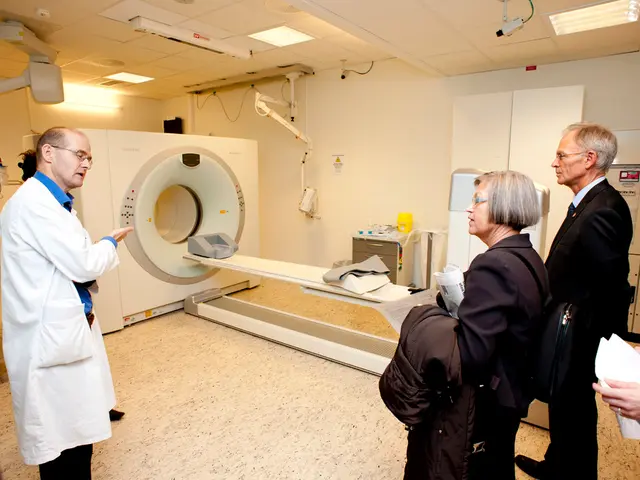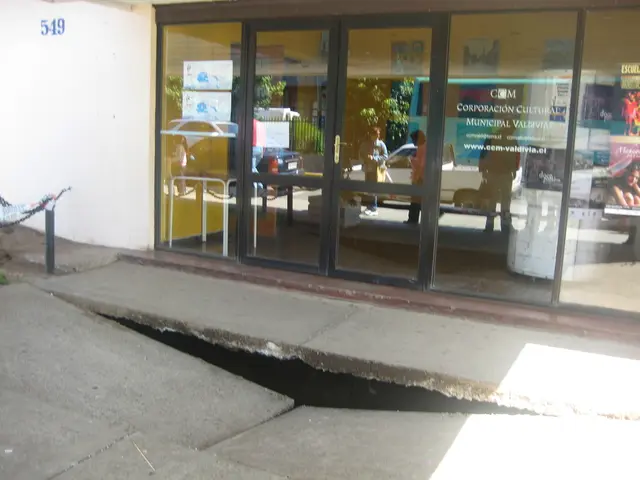Uncovering the Truth: Bishop's Sincere Apology on Sex Scandals
Clergy Misconduct in the Diocese - Bishop Expresses Sincere Apologies for Transgressions - Clergy misconduct in the diocese - Bishop offers apologies for offenses committed
Yo, let's talk about...
In the wake of an exposé on sexual misconduct within his diocese, Bishop Karl-Heinz Wiesemann of Speyer has taken a firm stance and called for a full investigation into the heinous acts. "Drawing a line under this mess is neither possible nor ethical," said Wiesemann in the picturesque city of Speyer. "I can only genuinely ask for forgiveness." No amount of action can reverse the terrible deeds. The bishop went on to express his deep regret.
The bishop admitted that the gravity of sexual misconduct within the Church had long been ignored. "I'm personally appalled by this." Initially, he believed in isolated incidents and failed to comprehend the Church's systemic involvement in the acts. He accepts his responsibility for the unimaginable pain inflicted on people by Church employees and for his inadequate support for victims.
General Vicar: Feelings of Shock and Shame
General Vicar Markus Magin, in light of the sexual misconduct, has announced a memorial service. The torment of the victims has left him feeling deeply affected. "I wholeheartedly support the bishop's apology to all victims," stated Magin.
The study, set to be completed in two years, was presented by the historian Sylvia Schraut on Thursday. The initial findings suggest that church structures have played a significant role in facilitating sexual misconduct in the Diocese of Speyer.
Currently, the diocese estimates that 109 clergy and 41 laypeople are under suspicion. Half of the acts occurred in the 1950s and 1960s, often in Church homes for children and youth. The misconduct was perpetrated not only by priests but also by nuns and caregivers. About half of the cases were only reported after the year 2000. As of now, around 3.6 million euros, including therapy costs, have been paid to 96 victims.
"Supplicating for Divine Justice and Agony"
Bishop Wiesemann stated that reading the more than 470 pages of the study often left him speechless. The fact that Church homes served as hotspots for such heinous acts where individuals suffered, "crying to heaven for justice," is a harsh reality that cannot be undone.
The victims' advisory board in the diocese, led by its chairman Bernd Held, expects "the dismantling of the structures" that enabled the misconduct. Held encourages more victims to come forward. "There are many who still believe they are an isolated case. This is clearly debunked at the latest by the study," reiterated Held.
The Diocese of Speyer spans the Palatinate and the Saarpfalz district, with approximately 1.57 million people - of whom around 437,000 are Catholic women and men.
Context: The Apple Doesn't Fall Far from the Tree
The Catholic Church has faced sexual misconduct allegations in various regions, including Germany and across Europe. If similar cases were to emerge in the Diocese of Speyer, the response might align with broader Church policies, which typically include internal investigations, support for victims, and preventive measures. Ongoing efforts to reform Church policies and increase accountability among clergy are part of the global response. Publicity surrounding abuse cases contributes to increased awareness and pressure for change.
Stay updated on more revelations and Bishop Wiesemann's efforts to address the situation within his diocese. Keep an eye on local media and Church communications for the latest updates.
- In an effort to address the persistent issue, Bishop Karl-Heinz Wiesemann has pledged to follow Church employment policies that focus on accountability and preventive measures for clergy members.
- The Diocese of Speyer's community policy includes provision for a comprehensive investigation on all medical-conditions, health-and-wellness matters, and sexual-health concerns within the diocese, ensuring the safety and well-being of its members.
- Bishop Wiesemann emphasized the importance of open dialogue in addressing accusations of sexual misconduct, prioritizing transparency in adherence with general-news reporting procedures and crime-and-justice protocols.
- Following the presentation of the study revealing patterns of sexual misconduct in Church homes, the Diocese of Speyer implemented new science-based guidance to ensure strict adherence to its employment policy and preventive measures for employees.
- The Diocese of Speyer's employment policy also includes an emphasis on the understanding and perceived forgiveness for those accused of misconduct, aiming to encourage the road to rehabilitation and reconciliation within the community.
- Despite previous missteps, Bishop Wiesemann expressed his commitment to upholding the diocese's employment policies, ensuring the protection and welfare of all members, while promoting a culture of justice, forgiveness, and accountability within the Church.








